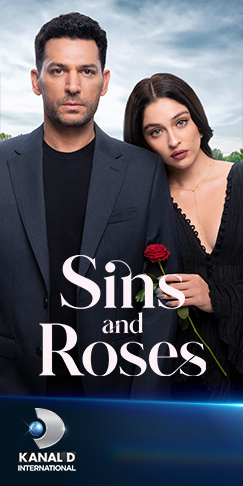José Antón, Deputy Director of Atresmedia content, spoke to ttvnews about the phenomenon of Turkish series in Spain and the success they are registering on Antena 3.
In January 2018, Atresmedia shook the market in Spain by premiering the first Turkish drama in the country (Fatmagül, Nova). And since then, the company has not stopped leading and promoting Turkish content in Spain with dozens of premieres through Nova and, since last year, the jump to prime time on Antena 3 to which the strip of the afternoons.
In fact, according to a study by consultancy firm Dos30′, Turkish dramas went from accounting for 491 hours of programming in 2018 to 3,286 hours in 2020. Almost seven times more. And Atresmedia has been the one responsible for the growth.
To discuss this phenomenon, its origins and consequences, ttvnews spoke with José Antón, Atresmedia’s deputy director of content.
Atresmedia was a pioneer with Turkish dramas in Spain. I imagine that they are be very happy with the results obtained so far…
We are very happy because the truth is that it has been a long journey. The first decision with the Turkish series was made in January 2018 when we decided to bring Fatmagül to Nova. It was a very risky step for what was the Spanish market in the sense that it was something totally new in Spain, beyond the success they already had in Latin America. Back then there was the usual resistance. It is true that culturally we are similar in many things, but there are others in which there is a great difference. And well, we jumped in… it could have turned out very well or very badly. And the truth is that it went very well from the beginning.
And last year you raised the stakes by premiering Woman on prime time on Antena 3. Was that always the plan or was it a kind of ‘serendipity’ that ended on that channel and at that time?
The reality is that we bought Woman thinking about betting on Antena 3. What happened to us is that when we already had it and we were thinking about it, we said to ourselves: ‘Let’s see if the Turkish dramas work on the smallest channel (Nova) but not on the largest (Antena 3) one’
So we waited longer than we expected. The purchase was made around May 2019 and when everything about the pandemic happened and summer arrived, that was when we decided to try and do what we had always thought to do.
Of course we had the back up plan that if it didn’t work we could take it to Nova. And the truth is that although at the beginning it started well, it was not what we hoped for, but we decided to continue betting on it. Not only did we not stop, but we also decided to bet on a form of programming that was not usual in Spain until then, which was to occupy several days of prime time with the same product. In August we went to two days of the series and even in September we reached three, something that I think helped the loyalty of the viewer. From then on it was really a success.
We are very happy with the decision because this is not a genre where you can go “Turkish dramas equals success”. No, there are a lot of series every year. We are talking about the second largest producer behind the US, so the key is to find which series can work and I think that we have known how to choose them both for Nova and Antena 3.
Deep down we think that it is just as difficult to find a Turkish product that works as it is to produce or find an American series. There is a lot of good product out there and the key is to find the great stories and the best production to bring to the public.
Now Bitter Lands has just inaugurated a new slot for Turkish dramas in Spain. What can you tell us about that decision, the expectations and the results obtained so far?
That has been another great gamble. It is true that it is not that different from what we have had on Antena 3 for many years, which is having two fictions: one in the afternoon and then the formats. But it is true that right now we had a structure with three game shows that worked. And it is also true that Ahora caigo was ending a cycle after more than 10 years and within the options that we had before us, which were many, we said: “We are going to bet on returning to that model of two fictions.” In this case, a national fiction and a foreign one, as we have already had in the past with Latin products. And well, with a lot of fear but with a lot of confidence because Bitter Lands is a great series. It has been number one in Turkey and in many countries during these three years that it has been broadcasting and we believe that there are not many series like this to fill a gap like that, a newspaper.
What must a Turkish drama have to reach Antena 3 instead of Nova?
It’s a bit of what they pay us for (laughs). I think the key is that at Nova from the beginning in 2018 we have had great international Turkish successes like Fatmagül, Para Kara Ask, Feriha, 1001 Nights… We had already broadcast those great shows that had triumphed internationally.
On the other hand, Woman is a series that when we acquired it was still filming and in fact when we started broadcasting it it was finishing its broadcast in Turkey. In other words, a very recent series, very current, with very very high production standards, which is what is happening right now with Turkish products. They have always had very high standards, but the more time passes they have grown more. Right now a series like Woman or Bitter Lands are practically cinema. Those exteriors, those sets… So, for the main channel we have decided on the most recent great hits.
Sometimes the way you guide yourself is by looking at the product, but also its international repercussion and I think this is the case with Bitter Lands and The Innocents, which is the same example: Turkey’s number one drama last year, a very impressive production, and a series that has already started to travel with great success.
With the growth of Turkish dramas there is also the loss of spaces for local fiction. How do you see this dilemma?
In our case we never tire of saying it, because it is absolutely true: Turkish fiction is replacing production that we had from other countries. The reality is that on Antena 3 we broadcast a lot of American or foreign cinema several nights. Sometimes we had British, French, American series … We have not reduced the volume of national production. In fact, by incorporating Atresplayer Premium into our offer, what Atresmedia has done is to increase the volume of original national production. We have been the company that in 2020 has produced the most national fictions. More than anyone, including OTT, and by far. And in 2021 we have been the company that has produced the most fiction.
I believe, on the contrary, that the Turkish phenomenon encourages us to continue working from the national perspective, because for example there has been a moment when it has been said: fiction on broadcast TV no longer works. And suddenly this comes along and puts you in the reality of saying, “Hey, it does work.” This is fiction. This is free-to-air television. So I think it encourages all of us to continue working. But from our perspective we believe that just as we have been a benchmark in series and series production until now, we will continue to be so in the future. And we insist a lot on saying that we are replacing someone else with someone else.
And why do you think Turkish dramas work so well on FTA?
We continue to have a very successful daily series every afternoon that we will continue to work with. That is, we continue to think that broadcast TV fiction works. We recently premiered La cocinera de Castamar, which has been an example of, without generating beastly numbers, being the most watched Spanish series with very good numbers. And we do think that open fiction is still alive and for many years. What can we learn from the Turks? Well, what can be learned from everything. I think there are certain narrative and dramatic things that they do very well.
From the perspective of Atresmedia we continue and will continue to believe in fiction for the open. In fact, we have the bet with the most watched daily series in the country and we will continue to believe in fiction for open prime time. And on the other hand, fortunately we now have the Atresplayer Premium and we can also produce fiction with that more transgressive touch or more of the payment.
My perspective is that open national fiction continues to have its place and that does not mean that there is, as there has always been, other people’s fiction that can work. The reality is that a few years ago great American series were running, even in the afternoons… It is not a new phenomenon, it is something normal and other people’s fiction like their own works and one is not going to replace the other.
Have you considered making daily series for prime time following the Turkish model?
You realize everything has a trick, because the Turkish series are actually weekly prime time series in Turkey and they are broadcast with a daily series, when they are not. In our case we have taken Turkish prime time weekly series and we have turned them into prime time series in Spain such as Woman and My daughter. The difference has been with Bitter Lands, which is a prime series in Turkey and as it has many seasons we can broadcast it daily.
On the other hand, in this case we have wanted to take great stories that have come to Spain through Turkish fictions and we have wanted to adapt them in Spain and that is the case of Alba with Fatmagül and Heridas, a version of Mother that we are filming.
It is another example of how in our case Turkish fiction is not only not taking ground away from national fiction but we want it to inspire us tomake national fiction. And we already have two projects.
How did the strategy of adapting Turkish series come about and why have you opted for the 13-episode format?
Adapting these series was really because we thought they were super stories. And the 13-episode format is the usual format in Spain for a full season. There was no point in considering doing 39 …
Are you planning more adaptations?
Right now we don’t have any in the works but if we see a story that makes sense because it makes us fall in love, be it Turkish or from any country, we will.
And co-productions with Turkey?
It is something that we have on the list of possibilities to explore, because we believe that a great audiovisual product is made in Turkey and we believe that surely a co-production could be provided, so of course we are open to them.











